Revenue sharing tops county priorities in Lansing in ’25
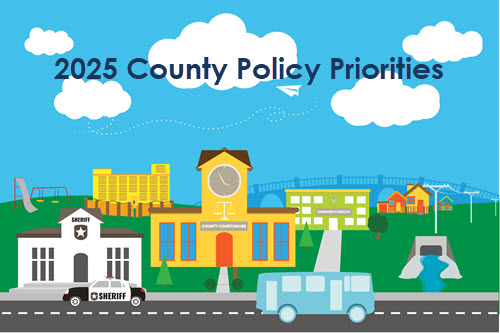 Creating a dedicated Revenue Sharing Trust Fund that reflects a true sharing of money between the state and local governments tops the list of legislative priorities for MAC’s 83 members in 2025.
Creating a dedicated Revenue Sharing Trust Fund that reflects a true sharing of money between the state and local governments tops the list of legislative priorities for MAC’s 83 members in 2025.
Legislation for this long-needed reform won overwhelming bipartisan approval in the House in the last Legislature, but political squabbles in Lansing in December 2024 derailed it in the Senate. Despite this setback, counties remain committed to a necessary reform to ensure proper delivery of local public services, said MAC’s director of governmental affairs.
“Michigan’s 83 counties are unique in the current revenue sharing system in that every last dollar for counties must come through the annual budget process, making county revenue sharing particularly uncertain,” Deena Bosworth said. “And we don’t have to look back far to see how this jeopardizes proper funding. In the state’s fiscal 2024 budget process, county revenue sharing shrank from more than $285 million to $261 million, a 9 percent drop in a matter of months. This legislation is essential to ending this uncertainty and resulting disruption to local services.”
MAC also is among advocates for quick action to reform minimum wage and sick time rules that could leave counties scrambling to ensure proper staffing within financial constraints.
Other county goals for 2025 in Lansing are:
- Compensating Local Governments for Funds Diverted by the Veterans Property Tax Exemption
- Adopting a Permanent State Solution to Funding Michigan’s Courts
- Increasing Road Funding to Address Michigan’s Infrastructure Crisis
“So much was left on the legislative ‘table’ last year that the coming year could be one of great progress, if lawmakers from both parties can find their way toward common ground,” said MAC Executive Director Stephan Currie. “As always, our members, as locally elected leaders, simply want to partner with state officials to make government work more effectively for our communities.”
For more information on MAC’s advocacy work, visit www.micounties.org or contact Deena Bosworth at bosworth@micounties.org.
ICYMI: MAC webinar answers opioid spending questions
 Counties with questions about opioid settlement spending or resources are strongly urged to view a MAC webinar recorded in January 2025 and led by Amy Dolinky.
Counties with questions about opioid settlement spending or resources are strongly urged to view a MAC webinar recorded in January 2025 and led by Amy Dolinky.
The approximately 45-minute session reviews MAC’s nationally recognized Resource Center webpage and dashboard and the growing resources county leaders have to ensure they make the best possible investments with their funds.
On spending
“When we talk about spending requirements, most of the settlements have the same spending requirements,” Dolinky noted. “They all have a little bit of difference when it comes to certain aspects, but most are using a document called Exhibit E, which is legally defined as a non-exhaustive list for opioid remediation or opioid abatement.
“Now Exhibit E is about 15 pages and really highlights some of the most evidence-based practices that exist for purposes of opioid remediation, and it focuses on prevention, harm reduction, treatment and recovery and avoiding items that are punitive or coercive. So, with the Exhibit E requirements, that’s only part of the spending requirements. We also have how funds are used. So, 85 percent of funds have to be used for opioid remediation, or really in alignment with Exhibit E. Fifteen percent of those funds are unrestricted. And with that, that’s the place where we see the reporting requirements.”
On reporting
“When it comes to reporting, I did mention the voluntary survey that MAC offers on an annual basis,” Dolinky said, “but in terms of reporting requirements within the settlement agreements or the legal documents themselves, counties are required to report twice a year to a company called BrownGreer. They’re identified as the national settlement administrator, and with that, in order to get those funds into the county, most folks are using an ACH through this payment portal. Either way, the payment portal has to be completed, and approximately three people in each local government have access to that portal.
“The reporting takes place in the same portal that folks are requesting the funds in or signed up for to receive funds. So, when you’re reporting, you’re only reporting on activities that do not align with Exhibit E so that other 15 percent which is unrestricted. Some counties are putting 100 percent of their settlement funds towards opioid remediation, while others are using that 15 percent for other activities. So, if someone were to do an infrastructure project unrelated to substance use, or a roads project or bridges project, that would be something that would be reported to BrownGreer on that biannual basis. But, right now in Michigan, there are no additional reporting requirements for local governments.”
Calling all new and experienced local leaders! Join the Local Government Learning Community
 The Michigan Association of Counties, Michigan Municipal League and Michigan Townships Association host a free, one-hour virtual webinar each month for local governments to discuss the latest developments in opioid settlement fund utilization. Speakers include statewide experts and local government peers sharing best practices for distributing and operationalizing opioid settlement funds. Representatives from counties, cities and townships are welcome to participate.
The Michigan Association of Counties, Michigan Municipal League and Michigan Townships Association host a free, one-hour virtual webinar each month for local governments to discuss the latest developments in opioid settlement fund utilization. Speakers include statewide experts and local government peers sharing best practices for distributing and operationalizing opioid settlement funds. Representatives from counties, cities and townships are welcome to participate.
When do these webinars happen?
The local government learning community webinars occur on the second Friday of each month at noon via Zoom.
How can I join?
Sign up using this form or email Erin Lammers at elammers@publicsectorconsultants.com to be added to our roster.
Join EGLE on Feb. 19 for webinar on Materials Management Planning grants
 The Michigan Department of Environment, Great Lakes and Energy (EGLE) is hosting a webinar on Feb. 19 to explain the 2025 Materials Management Planning Grant Program Application and funding available to counties and regions for materials management planning. This webinar is specifically for County Approval Agencies (CAA) and their Designated Planning Agencies (DPA) who will be developing and implementing their new Materials Management Plans required under the solid waste statutory changes enacted in 2022. Others responsible for assisting the CCA and/or DPA in planning, managing grant budgeting, and/or grant implementation are also encouraged to join.
The Michigan Department of Environment, Great Lakes and Energy (EGLE) is hosting a webinar on Feb. 19 to explain the 2025 Materials Management Planning Grant Program Application and funding available to counties and regions for materials management planning. This webinar is specifically for County Approval Agencies (CAA) and their Designated Planning Agencies (DPA) who will be developing and implementing their new Materials Management Plans required under the solid waste statutory changes enacted in 2022. Others responsible for assisting the CCA and/or DPA in planning, managing grant budgeting, and/or grant implementation are also encouraged to join.
The webinar will run from 11 a.m. to 12 p.m. Eastern. Click here to register.
Please visit the following key webpages to learn more:
- Materials Management Planning
- Michigan Materials Management
- Michigan Materials Management Facilities
- 2024 Virtual Materials Management Conference (session recordings)
For questions about the program contact EGLE-MMD@Michigan.gov.
For webinar registration issues, contact BertholdA@Michigan.gov or RoseberryJ@Michigan.gov.
 Locals can get federal dollars for energy projects
Locals can get federal dollars for energy projects
The Inflation Reduction Act’s new direct pay program provides direct cash payments to nonprofits, municipalities and tribal governments for clean energy projects that are equivalent to the tax credit a for-profit company would receive.
While the direct pay program offers an important financial boost for clean energy transitions, for some, the time gap between working on a project and receiving the direct pay credit can deter even getting started. Michigan Saves can help. Our new bridge financing program addresses the real-time expenses incurred between initiating a project and receiving funds tied to a tax filing deadline after completion.
Learn more and apply
 Staff picks
Staff picks
- House GOP leadership fills remaining committee chairs, puts focus on budget earmark (Michigan Public Radio Network)
- Gone a century, Arctic grayling return soon to Michigan. Can they survive? (Bridge Michigan)
- Getting the “Dys” out of Michigan’s dysfunctional Legislature (Citizens Research Council)
- Heavier truck proposals in Congress threaten county bridges (NACo County News)

 Bills amending the state’s minimum wage and Earned Sick Time Act cleared the House this week with bipartisan support.
Bills amending the state’s minimum wage and Earned Sick Time Act cleared the House this week with bipartisan support. This year would be a great time for Michigan to tackle reform of local government finance, says the nonpartisan Citizens Research Council of Michigan in a new study.
This year would be a great time for Michigan to tackle reform of local government finance, says the nonpartisan Citizens Research Council of Michigan in a new study. County commissioners have just days left to apply for MAC’s five standing committees for 2025. Applications are due by Jan. 31, 2025. To apply, please email a completed
County commissioners have just days left to apply for MAC’s five standing committees for 2025. Applications are due by Jan. 31, 2025. To apply, please email a completed  A new
A new 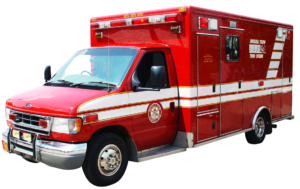 Michigan will now participate in a federal reimbursement program for ground medical transportation after Gov. Gretchen Whitmer signed House Bill 5695 this week. MAC supported the legislation.
Michigan will now participate in a federal reimbursement program for ground medical transportation after Gov. Gretchen Whitmer signed House Bill 5695 this week. MAC supported the legislation. State releases checklist on renewable energy siting process
State releases checklist on renewable energy siting process Annual $50 million investments into a housing investment fund and streamlining the work for up to $118 million in regional housing efforts are just two of the accomplishments touted this week at the halfway point of Michigan’s first five-year
Annual $50 million investments into a housing investment fund and streamlining the work for up to $118 million in regional housing efforts are just two of the accomplishments touted this week at the halfway point of Michigan’s first five-year  The state will offer two days of “dynamic environmental training” in March at the Northern Michigan Environmental Conference.
The state will offer two days of “dynamic environmental training” in March at the Northern Michigan Environmental Conference. Gov. Gretchen Whitmer called on legislators during her public address this week to find a sustainable, long-term funding solution to the persistent road funding dilemma. In response, House Speaker Matt Hall (R-Kalamazoo) provided this week
Gov. Gretchen Whitmer called on legislators during her public address this week to find a sustainable, long-term funding solution to the persistent road funding dilemma. In response, House Speaker Matt Hall (R-Kalamazoo) provided this week  Michigan’s county government leaders commended Gov. Gretchen Whitmer’s emphasis on investing in local public assets and services in her “Road Ahead” address at the Detroit Auto Show this week.
Michigan’s county government leaders commended Gov. Gretchen Whitmer’s emphasis on investing in local public assets and services in her “Road Ahead” address at the Detroit Auto Show this week. The Michigan Department of Treasury announced this week it will send taxable value reports for May 2024 to cities, villages and townships across the state. These reports, derived from county equalization data submitted in May 2024, will serve as a critical step in verifying the taxable values reported by local governments.
The Michigan Department of Treasury announced this week it will send taxable value reports for May 2024 to cities, villages and townships across the state. These reports, derived from county equalization data submitted in May 2024, will serve as a critical step in verifying the taxable values reported by local governments.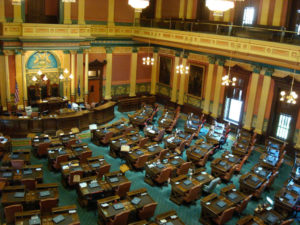 Traditions are being broken right and left at the State Capitol in 2025 and it’s unclear how counties will fare from the results, MAC’s Podcast 83 Team reports in its
Traditions are being broken right and left at the State Capitol in 2025 and it’s unclear how counties will fare from the results, MAC’s Podcast 83 Team reports in its  The Michigan Department of Environment, Great Lakes and Energy (EGLE) is still accepting public comment through Jan. 31 on the draft
The Michigan Department of Environment, Great Lakes and Energy (EGLE) is still accepting public comment through Jan. 31 on the draft  MAC offices closed on Monday, Jan. 20
MAC offices closed on Monday, Jan. 20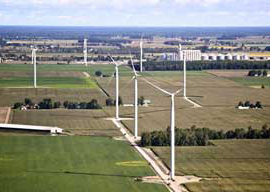 The Department of Environment, Great Lakes and Energy (EGLE) and the Renewable Energy Academy (REA) are hosting a workshop on Jan. 29 in Gaylord to provide local officials, planning commissioners and/or planning staff with the information needed to prepare for the new siting landscape that came into effect Nov. 29, 2024.
The Department of Environment, Great Lakes and Energy (EGLE) and the Renewable Energy Academy (REA) are hosting a workshop on Jan. 29 in Gaylord to provide local officials, planning commissioners and/or planning staff with the information needed to prepare for the new siting landscape that came into effect Nov. 29, 2024.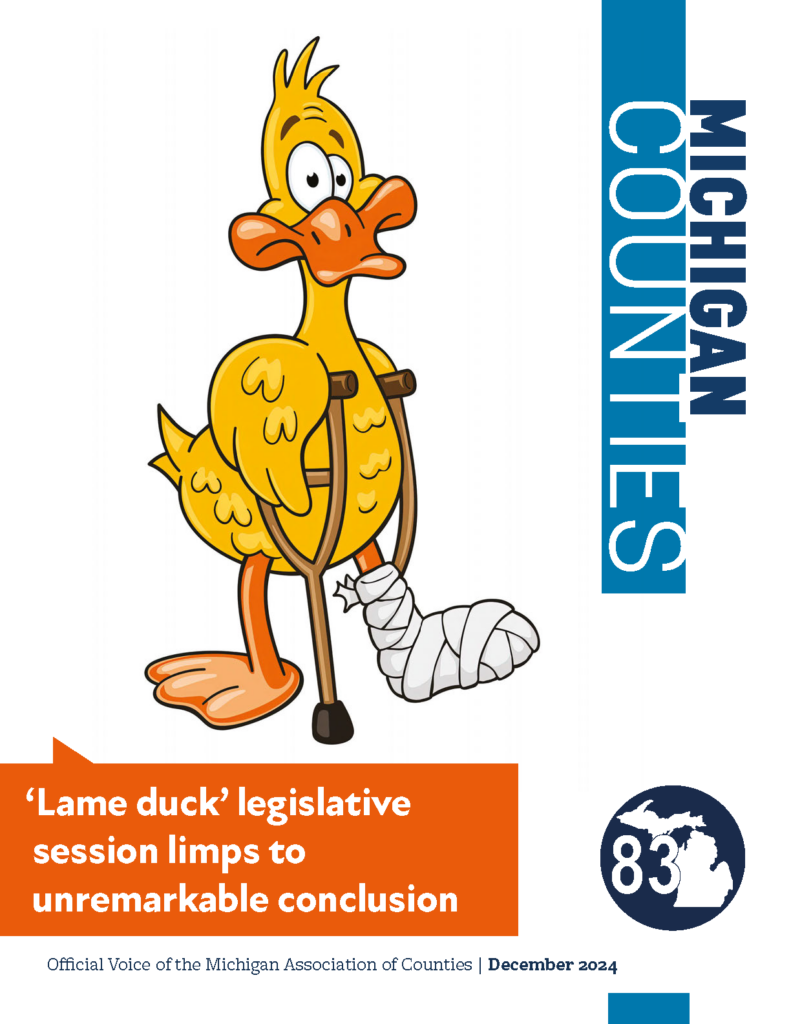

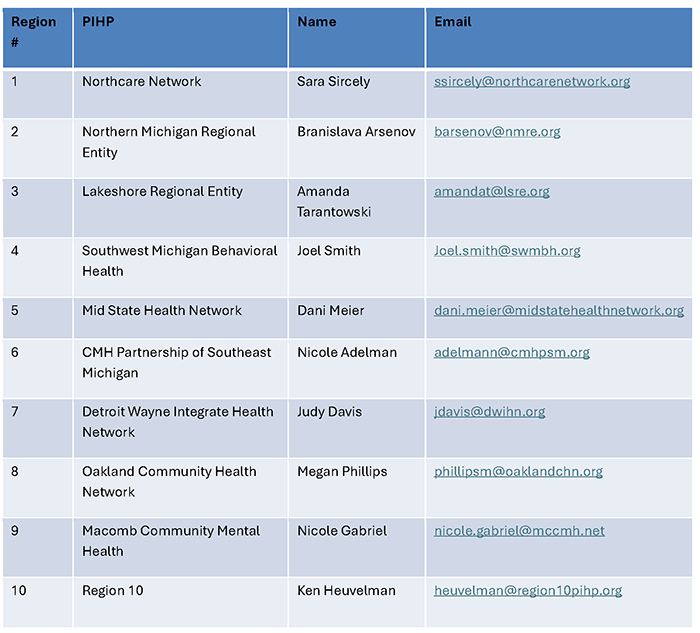




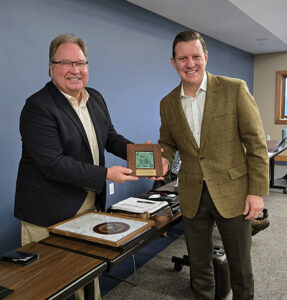
 MAC announces office schedule for holiday season
MAC announces office schedule for holiday season




